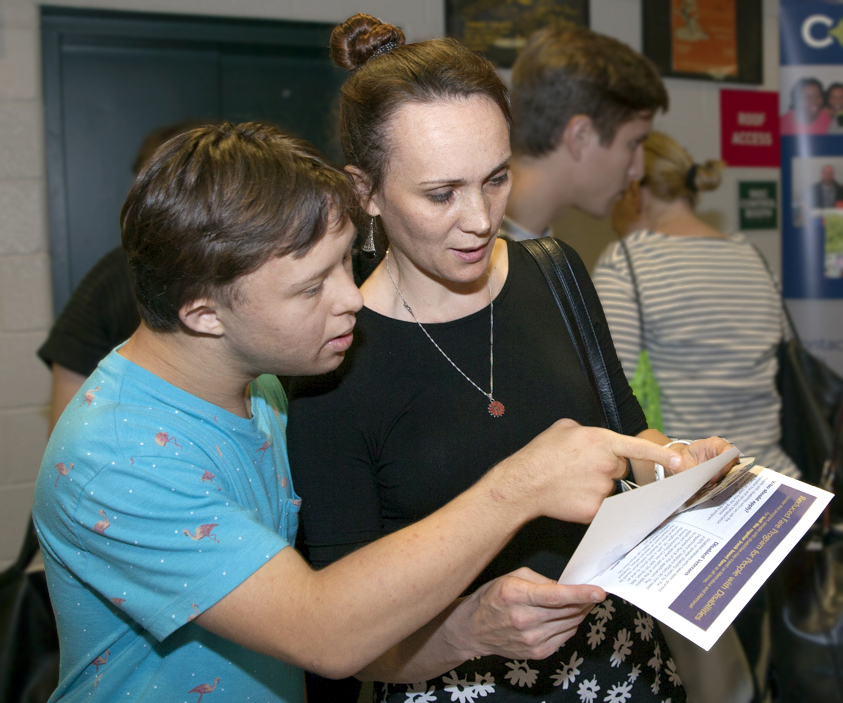People and Families > Transitioning Youth
Children have access to special education services until they finish the school year when they turn 21, or earlier
if they graduate from high school. The law requires that students who need special education services receive a
free and appropriate public education (FAPE). This is why it is called an entitlement. A student’s special education
needs are listed in their Individualized Education Program (IEP).
Adult services are different from entitlements. Not everyone gets them. To receive services as an adult, a person has to meet eligibility requirements.
Transitioning Youth (TY) is a term used for children ages 14 to 21 who are preparing to leave school. The DDA has
a special category of eligibility and priority for services through the Governor’s Transitioning Youth Initiative for
people 21 through 22 years of age. This makes it possible for the DDA, working with the Division of Rehabilitative Services (DORS), to fund employment services and other day services for eligible students leaving school who
otherwise may have gone on the DDA Waiting List.
Information about Transition Planning is in the MD Secondary Transition Planning Guide. You may also want to
learn about the Charting the LifeCourse framework. This was created to help people and families of all abilities
and all ages develop a vision for a good life. Many of the Charting the LifeCourse tools are used in the pre-planning
phase of the DDA’s person-centered planning process.
Coordinators of Community Services assist people in accessing the DDA and other service delivery systems, services, and
resources. Once found to be eligible for DDA services, you will receive targeted case management from a CCS agency. This will include developing a person-centered plan that
considers your goals and preferences to identify desired services and support needs.
Understanding TY Eligibility and Funding
Transitioning Youth comprise a special category of eligibility and priority for services. Through the Governor's Transitioning Youth Initiative, the DDA, in collaboration with DORS, has been able to fund supported employment and other day services for eligible graduating students who otherwise may not have received DDA services.
Without the Initiative, students leaving the school system would be placed on a lengthy waiting list for adult services. The Governor's Transitioning Youth Initiative earmarks funds in the DDA budget for eligible students leaving school, regardless of the severity of their situation and their relative need for immediate services.
For an individual to be eligible for the Governor's Transitioning Youth Initiative he or she must be found fully eligible as developmentally disabled.
The developmental disability eligibility criteria state that the person has a severe chronic disability that:
- Is attributable to a physical or mental impairment, other than the sole diagnosis of mental illness, or to a combination of mental and physical impairments;
- Is manifested before the individual attains the age of 22;
- Is likely to continue indefinitely;
- Results in an inability to live independently without external support or continuing and regular assistance;
- Reflects the need for a combination and sequence of special, interdisciplinary or generic care, treatment, or other services that are individually planned and coordinated for the individual.
To join DDA services using the Transitioning Youth category, a student is eligible from his/her 21st birthday until his/her 22nd birthday. If the date of graduation is after the student's 21st birthday, they are be eligible for one year after the date of graduation.
How Do I?
Resources and Information
Transitioning Youth Contacts
Central Maryland Regional Office
Beryl Parker
Eastern Shore Regional Office
Jim Sullivan
Southern Maryland Regional OfficeNicole Sheppard
Western Maryland Regional OfficeBrenda Sperow

